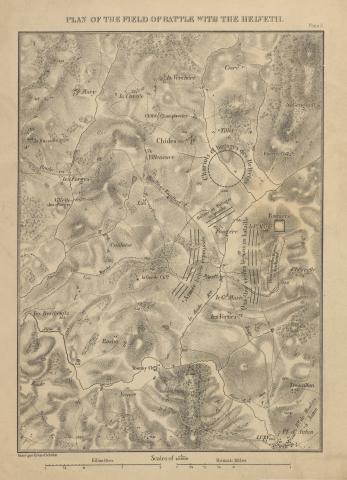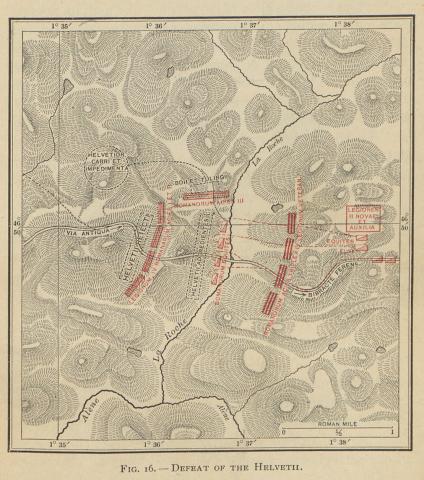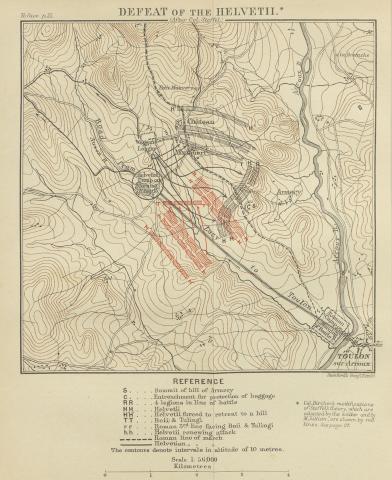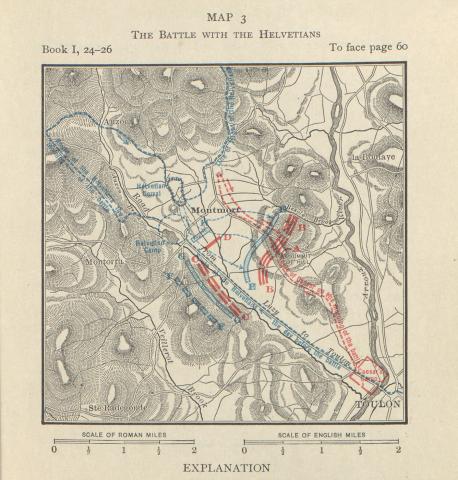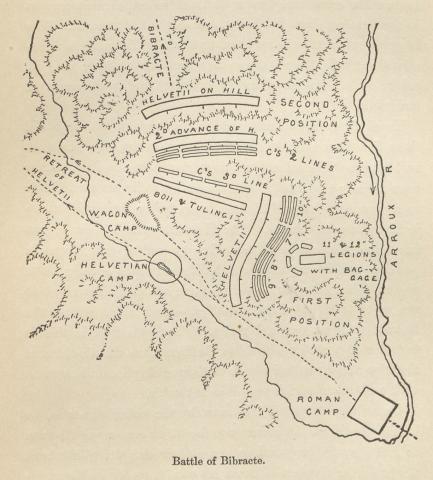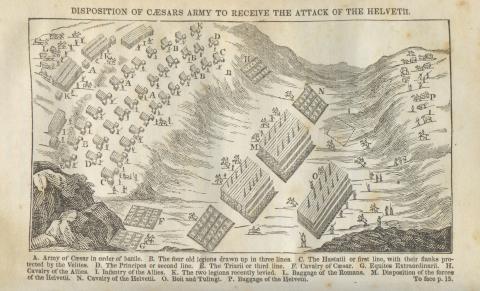cōnspectus, -ūs m.: sight, appearance; presence.
removeō, -movēre, -mōvī, -mōtus: move back; remove, take away, dismiss.
aequō, -āre, -āvī, -ātus: make level, make equal, equalize.
cohortor, -ārī, -ātus: incite, encourage; address.
pīlum, -ī, n.: javelin; mūrāle pīlum, wall-javelin, a heavy javelin to be hurled from fortifications.
facile: adv., easily, without difficulty; safely; unquestionably.
phalanx, -angis, f.: phalanx, a compact body of troops in battle array.
perfringō, -fringere, -frēgī, -frāctus: break through, force a way through.
disiciō, -icere, -iēcī, -iectus: drive apart; disperse, scatter.
dēstringō, -stringere, -strīnxī, -strictus: unsheathe.
impedīmentum, -ī n.: obstruction, hindrance; pl., luggage, baggage, baggage train, pack-animals.
quod: conj., that, in that, because, since; as to the fact that: the fact that.
scūtum, -ī, n.: shield.
pīlum, -ī, n.: javelin; mūrāle pīlum, wall-javelin, a heavy javelin to be hurled from fortifications.
trānsfīgō, -fīgere, -fīxī, -fīxus: pierce through, drive through, transfix.
conligō, -āre, -āvī, -ātus: tie together, fasten together.
īnflectō, -flectere, -flexī, -flexus: bend down, bend.
ēvellō, -vellere, -vellī, -vulsus: pull out.
sinistra –ae f. (sc. manus): the left hand
impediō, -īre, -īvī, -ītus: fetter; entangle, obstruct, hinder.
commodus, -a, -um: complete; suitable, convenient, favorable, easy; serviceable, useful; (adv.) commodē, well, suitably, conveniently; effectively, profitably, easily.
iactō, -āre, -āvī, -ātus: throw with violence, hurl; toss about, shake; discuss.
bracchium, -ī, n.: forearm, arm.
praeoptō, -āre, -āvī, -ātus: choose rather, prefer.
scūtum, -ī, n.: shield.
ēmittō, -mittere, -mīsī, -missus: send out, send forth; throw; let go, throw away.
dēfetīscor, -fetīscī, -fessus: become very weary, be exhausted.
quod: conj., that, in that, because, since; as to the fact that: the fact that.
subsum, -esse: be near, be at hand.
circiter: (1) adv., about, nearly; (2) prep. with acc., about, around, near.
passus, -ūs m.: step, pace; double step (five Roman feet); mīlle passūs, mile; duo mīlia passuum, two miles. See mīlle.
succēdō, -cēdere, -cessī, -cessus: march up; approach; come next; succeed, take the place of, relieve; be successful, prosper.
nostri -orum m. pl.: our men
Bōiī, Bōiōrum, m.: pl., the Boii, a Gallic tribe, which was finally settled in the territory of the Aedui, perhaps in the angle between the Elaver (Allier) and the Liger (Loire).
Tulingī, -ōrum, m.: pl., the Tulingi, a small tribe, living perhaps across the Rhine from the Helvetii.
quīndecim (xv) indecl. adj.: fifteen.
apertus, -a, -um: open, uncovered, unprotected, exposed, bare; unimpeded; apertum latus, exposed flank, usually the right, which was unprotected by the shields.
adgredior, -gredī, -gressus: move towards, approach; attack; try.
circumveniō, -venīre, -vēnī, -ventus: come around, surround, beset; circumvent, deceive.
cōnspicor, -ārī, -ātus: get sight of, see, notice.
Helvētius, -a, -um: Helvetian; as subst., m., a Helvetian; pl., the Helvetii, a rich and powerful tribe, whose country was nearly the same as modern Switzerland.
īnstō, -stāre, -stitī, -stātūrus: push on, press on; approach, impend, be near.
redintegrō, -āre, -āvī, -ātus: restore, renew, recruit; begin again.
bipartītō: adv., in two divisions.
submoveō, -movēre, -mōvī, -mōtus: drive off, drive back.
resistō, -sistere, -stitī: stay behind; halt, stop; make a stand, withstand, resist, oppose; resistitur, resistance is offered; resistēns, -entis, (adj.) enduring, firm, resolute.

